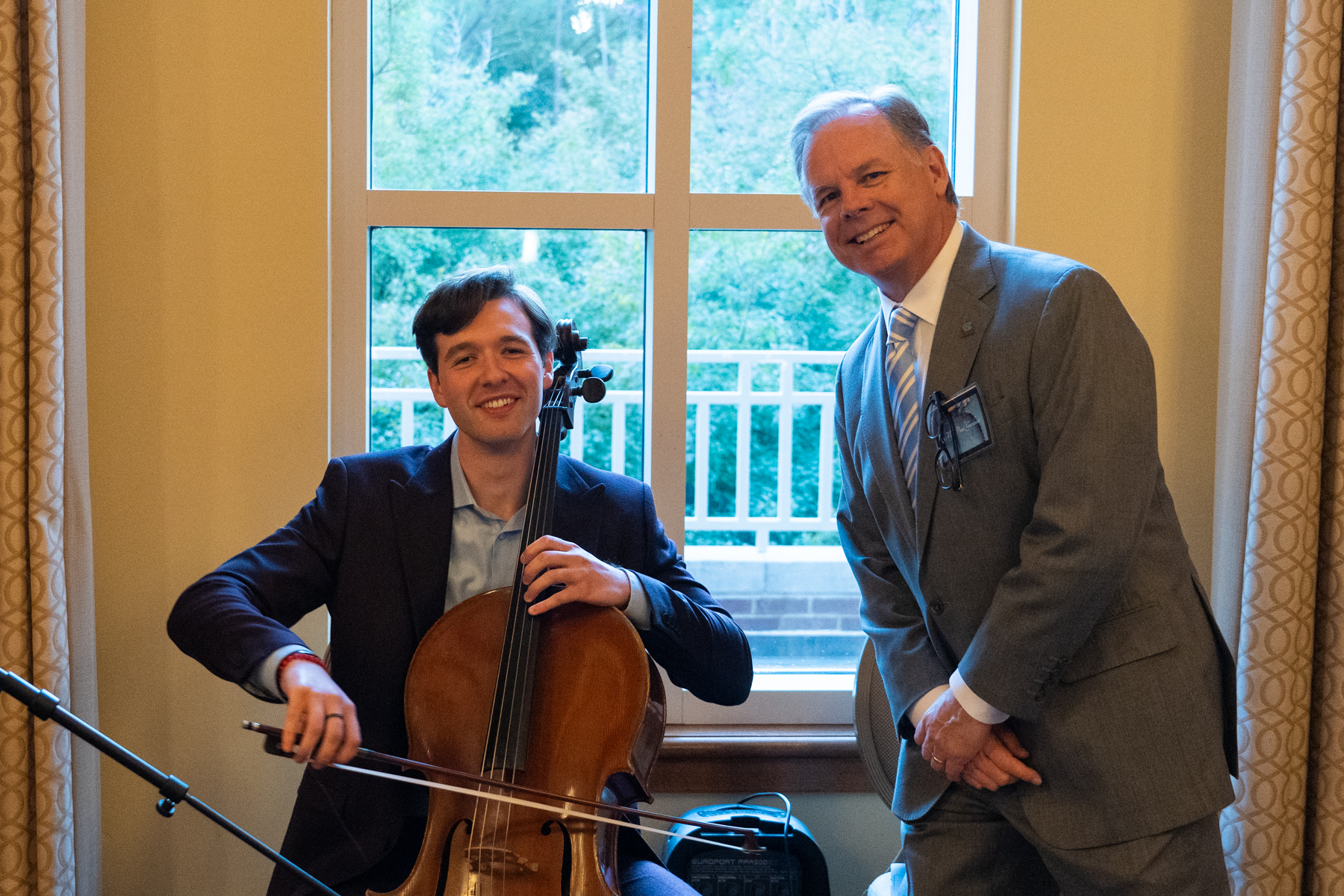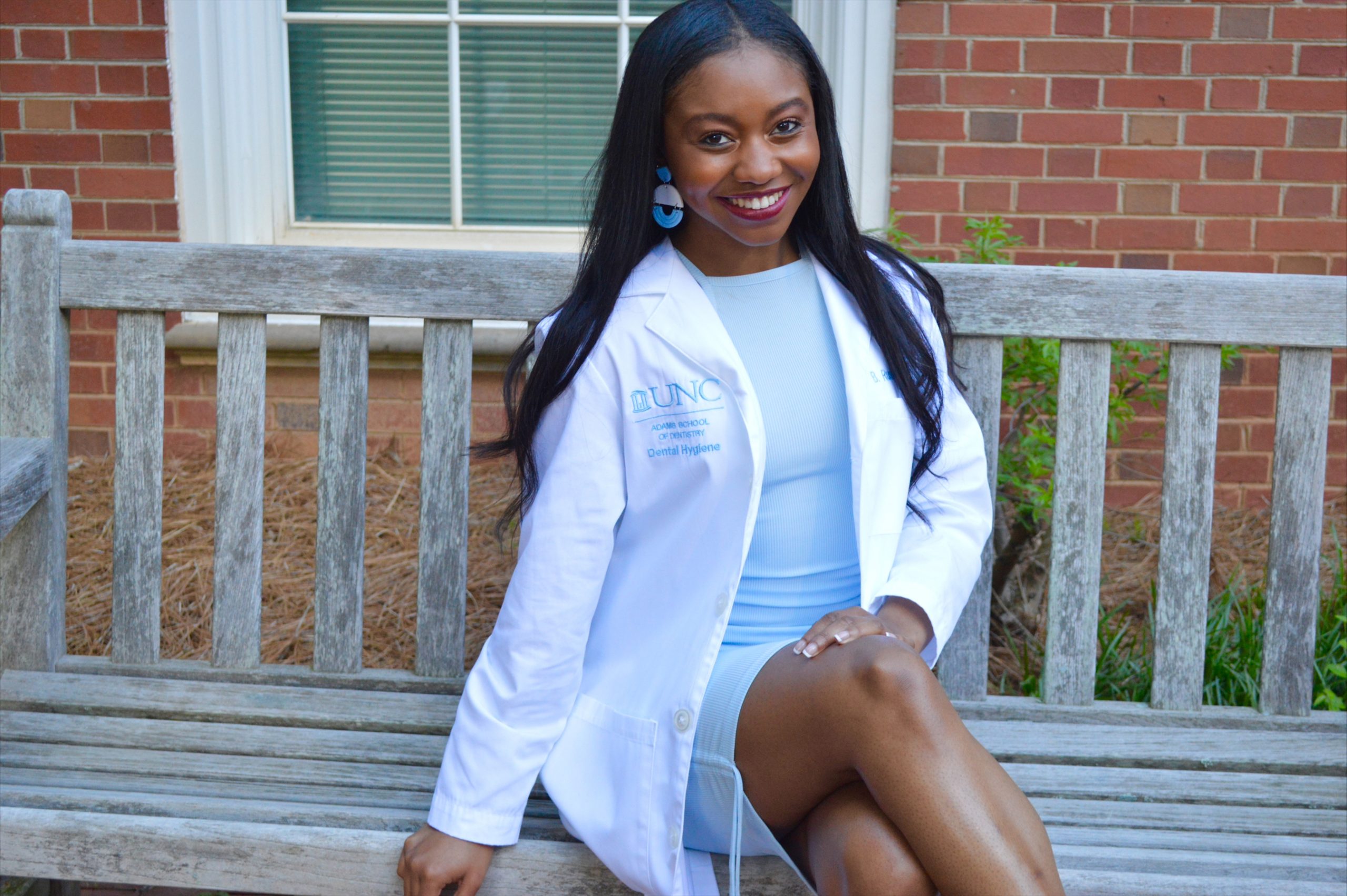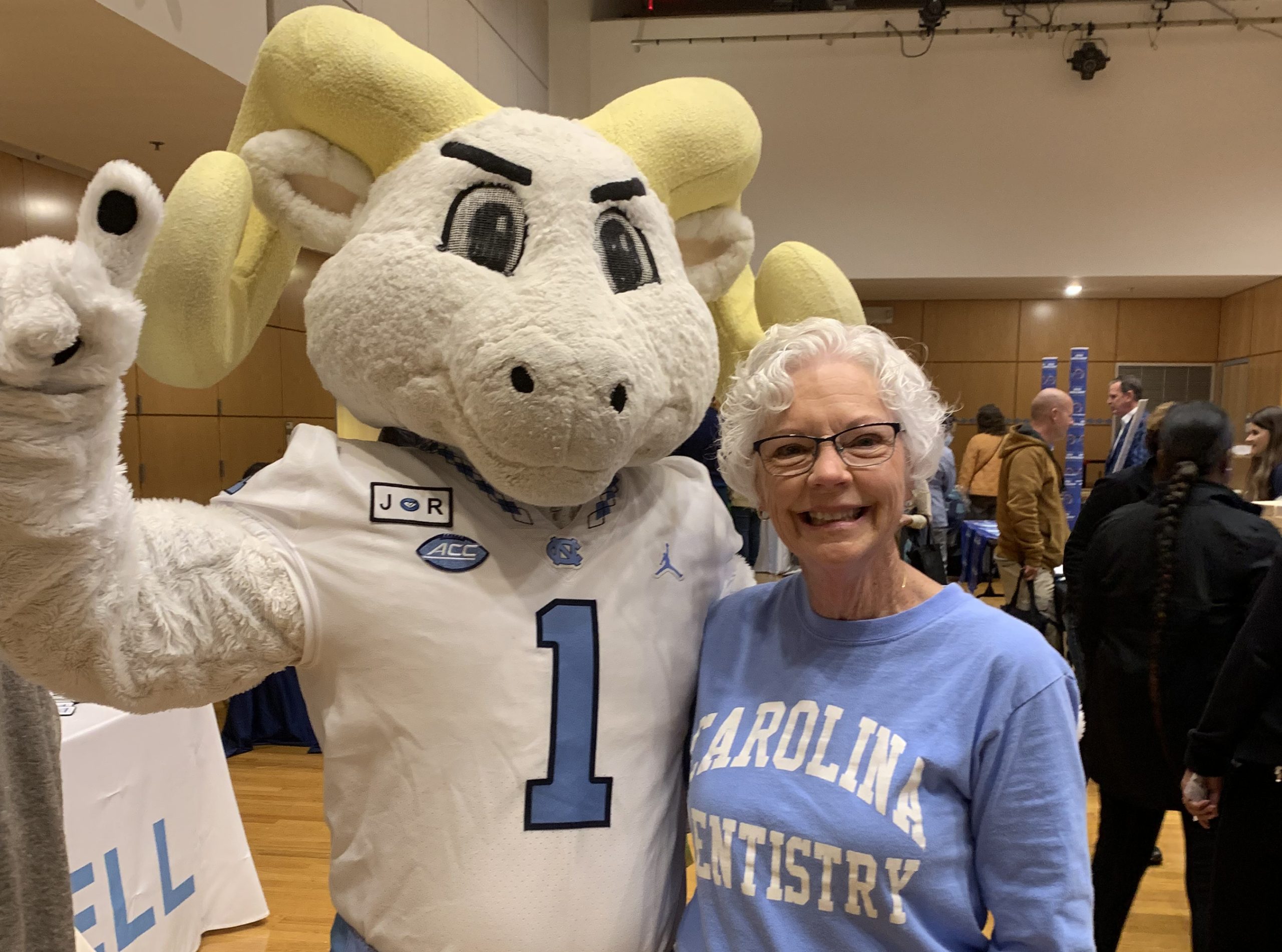Tankersley’s Commencement Address
Dr. Ron Tankersley, immediate past president of the American Dental Association (ADA), oral and maxillofacial surgeon in Newport News, Virginia, and adjunct professor of Oral and Maxillofacial Surgery at the Medical College of Virginia gave the keynote address at the UNC School of Dentistry commencement ceremony on May 8, 2011.
After completing his pre-dental education at the College of William and Mary, Dr. Tankersley received his DDS degree and completed a residency in Oral and Maxillofacial Surgery at the Medical College of Virginia. He established a private practice in 1971 and is senior partner in Hampton Roads Oral and Maxillofacial Surgery. Dr. Tankersley’s academic awards at the Medical College of Virginia included induction into Sigma Zeta and Omicron Kappa Upsilon. He is a Diplomate of the American Board of Oral and Maxillofacial Surgery (ABOMS) and has served as an ABOMS examiner for six years.
Prior to being elected ADA President-Elect, he represented the 16th District on the ADA Board of Trustees and president of his local, state and regional dental and specialty organizations. He received the Virginia Dental Association’s Presidents Award for distinguished service and two Pierre Fauchard Academy State Awards of Recognition. He is also the recipient of Medical College of Virginia’s Dr. Harry Lyons Outstanding Dental Alumnus Award.
ETHICS FOR GRADUATING DENTAL TEAM MEMBERS
First, I want to congratulate you and welcome you to the profession. You are now an important member of our dental family. Working together, we provide the most comprehensive, cost-effective, oral healthcare in the world.
Some of you will be dentists, hygienists, or assistants. Some will be researchers, educators, generalists, or specialists. Some will work in private practice, commercial practice, universities, public health, or the military. But, regardless of the path that you’ve chosen, the public’s perception of our profession is dependent upon your integrity and behavior.
As a group, you are the brightest, most enlightened, and most sophisticated in our history. But, even with all of those attributes, getting to this day required a tremendous commitment of time, effort, and resources on your part. There were probably a variety of reasons for your making that commitment, including the ability to earn a good living, the satisfaction of helping others, and the desire to make a difference. But, regardless of what specifically motivated you, it’s safe to say that you would have never worked so hard to become a member of our profession unless you believed in its integrity and credibility.
As the newest members of our profession, it’s now your responsibility to help preserve that credibility. Credibility is necessary for us to maintain the public’s trust and the public’s trust is necessary for us to remain a self-regulating profession. It’s important that you know that our ability to preserve the public’s trust could be in jeopardy. So, during the next few minutes, I’m going to discuss our profession’s legacy, a little about today’s dental profession, and a couple of the challenges that we face.
First, our legacy. We have a proud 152-year history. We’re not saints, so we’ve made a few mistakes. Nonetheless, our legacy is remarkable. Members of the American Dental Association’s House of Delegates are volunteer dentists, who represent their colleagues from the various geographic areas of the country, much like the U.S. House of Representatives.
Just imagine being those dentists who sat in the ADA’s House of Delegates in the 1950s:
- The average dental office had less than two employees. Dental teams, as we know them today, didn’t exist.
- Most patients thought that losing teeth was “normal” or “hereditary”.
- Extractions, placing amalgam restorations, and fabricating dentures were 85% of their practices and their primary source of income.
- Then, those dental leaders were confronted with scientific evidence that fluoridating drinking water would reduce caries almost 50% and that periodontal disease was preventable. What should they do? Should they protect their jobs like a trade union or step up to the plate and respond like “true” healthcare professionals?
We can all be proud that they chose the latter.
The ADA’s decision to advocate for fluoridated drinking water and change the focus of dental practice from disease management to prevention speaks volumes about our profession. Imagine accountants advocating for a flat tax. To really stretch your imagination, imagine trial attorneys advocating to cut litigation in half. To put their professionalism into perspective, imagine us advocating today for something that would reduce those services that dentists provide today by almost 50%.
The courage of those men and women in the 1950s is largely responsible for the public trust that we enjoy today. So, what about today’s dental profession? Well, we continue to build on that legacy. We know that what’s best for our patients is what’s best for our profession. The ADA is the “umbrella” organization for the profession. We represent generalists, specialists, educators, researchers, private practitioners, public health dentists, and dentists in uniform.
We still advocate for fluoridated drinking water, even though it still decreases our bottom lines. We also advocate for keeping dental amalgam as an option for restoring teeth, even though credible economic research estimates that, if amalgams were banned today, dental fees in the U.S. would increase $8.5 billion/year. We know that, until a better material is developed, some underserved and special-needs populations need dental amalgam. Dentists don’t need dental amalgam, but some of our patients do!
Finally, as America’s largest and most inclusive dental organization, finding sustainable solutions to providing dental care to the underserved is among the ADA’s highest priorities. Most individual members of today’s dental family are good, hard working men and women, just like you, who strive to protect the best interests of their patients and the profession. Studies reveal that most of us aspire to “do well, doing good”. And, we are not willing to sacrifice doing “good” for the sake of doing “well”. Your pride in the integrity of today’s dental profession is well placed. So, what’s the problem?
Well, the public trust that we enjoy today was hard to achieve, will be easy to lose, and difficult to restore. And, today’s environment presents some real challenges to us maintaining that public trust. In fact, long term, it’s probably our profession’s greatest challenge. Let me discuss a couple of the challenges that we need to overcome.
First, American culture is increasingly tolerant of ethical misconduct, denial of accountability, and the use of information that is unvetted or out of context. Ethical breaches in athletics, research, education, government, banking, and journalism are commonplace, often with little consequence. The second challenge is that spending more than we make has become the norm in American culture. Europeans typically save about 20% of their incomes; Asians save up to 35%. But, most Americans spend more than they make, and the results are astounding. The average personal debt for each of the 306 million men, women, and children in this country is over $51K. These self-imposed financial pressures are catalysts to ethical misconduct throughout our society.
Of course, members of our dental family are part of that society. So, the behavior that they witness in the world around them makes some of them oblivious to the impropriety of their own ethical misconduct. Their self-imposed financial pressures sometimes make ethical behavior subordinate to their financial needs. To make things worse, some continuing education courses actually promote ethical misconduct by teaching dentists to selectively sell the most financially rewarding treatments. Some even suggest financial rewards for allied dental personnel who “sell” high-end procedures. Of course, this is egregious behavior for healthcare professionals. Healthcare recommendations should not be based on quotas or a bonus system. Our “professional” status is a privilege reserved for only the most trusted in our society. We are given a de-facto monopoly on the knowledge of oral conditions, the various diagnostic and treatment options available for those conditions, and their risks, benefits, and cost-effectiveness.
“Doctor” means teacher. We have an ethical obligation to use our knowledge to educate our patients about their conditions and the full range of treatment options available to them. Over-treating or promoting only the most financially lucrative professional services abdicates that responsibility. What’s more, we perform irreversible procedures on our fellow human beings, on a regular basis. Few in our society are given that level of trust. If our behavioral standards don’t exceed those of society at large, we will lose our credibility, the public’s trust, and the privilege of self-regulation. So, what can we do?
As the guardians of today’s profession, we can’t permit a few misguided colleagues who surrender their ethical standards to cultural trends and self-imposed financial pressures to squander the public’s trust for the entire profession. As the newest members of today’s dental family, I hope that you will be vigilant in safe-guarding our future. Don’t let the ambiguity of today’s environment lull you into complacency about the importance of our profession’s integrity. According to behavioral psychologists, peer pressure is among the most powerful determinants of human behavior. Our ethical standards are determined by our peers, not lawyers and policy makers. We aspire to behave in a manner that meets the approval of those peers who we respect. That’s important, because studies show that most dentists who conduct themselves in an unethical manner don’t even realize that their behavior is unethical. They believe that their peers behave in a similar manner and would actually approve of such behavior.
So, as you go forward, hold your heads high and cherish the pride in our profession that you have today. When others behave in a manner that’s contrary to the ethics and professionalism that make you proud, remind them that members of our profession don’t behave that way. Let them know that such behavior is inappropriate and unacceptable to their colleagues. With time, their knowledge of your professional perspective will have a positive impact on their behavior. Your personal integrity will help enhance the credibility of the entire profession.
Dentistry will continue to be a trusted, self-regulating profession. The ADA will continue to be “America’s Leading Advocate for Oral Health.” Oral healthcare in the United States will continue to be the envy of the world. You will “do well, doing good.” Thanks for your warm hospitality and the opportunity to participate in today’s great celebration. I wish you the best as you enter the next phase of your professional careers.


